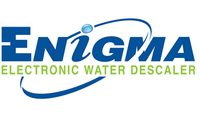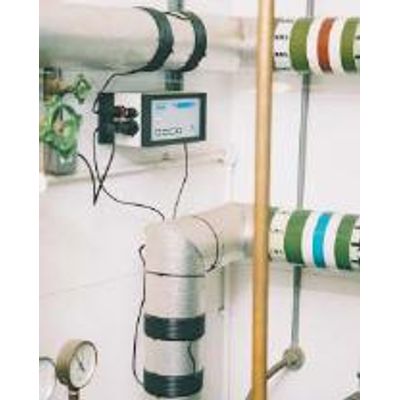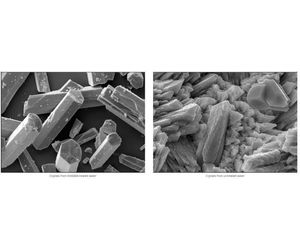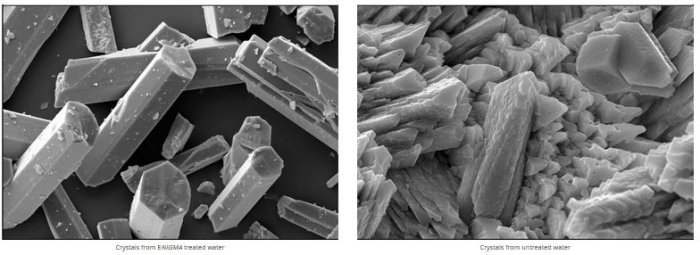

- Home
- Companies
- Environmental Treatment Concepts Ltd ...
- Products
- ENiGMA - Physical Water Treatment ...

ENiGMA - Physical Water Treatment System
ENiGMA overcomes the shortcomings of other physical water treatment systems by electronically generating the full range of frequencies required, at just the right intensity, thus ensuring consistent results over the full range of applications. In the newly developed second generation units, industrial microprocessors ensure reliable signal generation, control, scale removal and scale prevention.
- Extends life of capital equipment, prevents limescale build up and descales existing systems
- Uses no chemicals - can be used for drinking water
- Reduces maintenance costs
- Reduces downtime
- Easy to install and move
- Can be installed over lagging
- More than one pipe can be treated with just one unit
- Achieves large energy savings
- Reduces bacteria levels
- Can be used with any size pipe, any material and any flow rate
Independent university tests have confirmed the ability of ENiGMA to remove existing limescale and prevent formation of new deposits.
The ENiGMA provides a simple and economical solution to the limescale problem. It has been successfully installed for customers from all sections of commerce, industry and government.
Wherever hard water is used, the ENiGMA helps to maintain maximum efficiency in water heating and cooling systems.
The ENiGMA is an electronic water conditioner that is applied externally to the pipe of the water system or equipment requiring protection against damaging limescale. Treatment is applied simply by wrapping a signal cable around the outside of a pipe to form a coil. A range of units are available to cover pipe sizes from 8 mm to 1250 mm. No cutting into the pipework or additional plumbing is required.
Using modern microprocessors and signal processing techniques, the ENiGMA produces a complex, frequency modulated waveform. When these frequencies are applied, an oscillating electric field is induced into the water resulting in agitation of water molecules sufficient to trigger the release of carbon dioxide (CO2) resulting in the premature precipitation of calcium bicarbonate. Because precipitation occurs in the bulk of the water, the crystals seed onto other naturally occurring ions in the water, such as zinc. Their size and shape bear no physical resemblance to those formed in untreated water and they remain in suspension until discharged to drain.
This process naturally results in a tiny increase in solubility, which allows the now unsaturated water to dissolve existing scale deposits and remove them from the water system. Even deposits on the outside of the water system, on bathroom fittings for example, will soften with regular contact with treated water resulting in easier cleaning without the use of chemicals.
The key to effectively making use of this process lies in understanding not only the process itself but what prevents it happening and what causes the water to revert back to its previous condition. It is this understanding and many years practical experience that have enabled ETC to master fully this exciting emerging technology.

Limescale Problems & Prevention Limescale Problems
To understand how ENiGMA works it is necessary to have a basic understanding of why scale forms in water systems in the first place.
- Rain absorbs carbon dioxide as it falls to earth and percolates through the ground. The resulting acidity of the water causes normally insoluble calcium carbonate (chalk or limestone) to dissolve into a bicarbonate state. Thus calcium bicarbonate becomes part of the water chemistry, and can not be removed by simple filtration.
- When hard water is heated some of the carbon dioxide is released resulting in a small amount of its calcium bicarbonate reverting back to a calcium carbonate state. Thus precipitated hard crystals form onto the surface that caused their precipitation. As more water is introduced further crystals form and build-up to produce scale.
- Now the chemistry bit (click here to view the presentation)
Limescale Prevention
Applying ENiGMA treatment results in premature precipitation of calcium bicarbonate into the bulk of the water. These tiny crystals now have a host (other ions in the water) and will not adhere to surfaces.
Problems Caused by Hard Water
Water performs many vital functions, but not all of its properties provide benefits. Naturally hard water contains dissolved calcium and other minerals which help to build and maintain healthy bodies, but their effect on water systems can be very damaging.
When dissolved minerals, such as calcium bicarbonate, revert to their solid carbonate state, limescale is formed in water systems and this impedes heat transfer, narrows pipes and blocks sprays. Not only does this dramatically reduce system efficiency but it provides a breeding ground for bacteria, such as Legionella.
Research has shown that just 3 mm of limescale can reduce energy efficiency by a staggering 21%, and, in a moderately hard water area this can form on heat exchangers in just six months! £Billions are wasted each year in increased energy costs, lost production and early renewal of damaged equipment and appliances.
With a clean heat exchanger, a typical domestic hot water calorifier takes 1½ hours to heat a family’s water. With just 2 mm of scale the boiler has to run for another hour to heat the water, wasting a significant amount of fuel. (Source: University of Portsmouth)

Risk of Legionella & Legionnaire’s Disease
Legionella bacteria is common in natural water and is harmless unless inhaled in an atomised form, when it can cause an infection known as Legionnaire`s Disease. In water systems that have significant limescale deposits bacteria will thrive, particularly in cooling towers, hot and cold water systems, recirculated water humidifiers, spas and jacuzzis.
Conditions affecting the proliferation of Legionella:-
- The presence of scale deposits or algae growth in water
- Dead-legs in pipework or stagnation due to very low use of outlets
- Low temperatures in hot water heaters and distribution systems
- Stratification of water in water heaters
- Inappropriate water treatment
- Scaled hot water systems offer the perfect growing medium for bacteria and biofilms.
Bacteria, protected from heat and disinfectants, feed on calcium and therefore thrive in these environments, dramatically increasing the opportunities for legionella proliferation. At 50 degrees centigrade, it takes 2 hours to kill the bacteria. Maintaining a temperature of above 60 degrees is one sure way of being safe, however, without good water treatment these temperatures encourage severe scaling. What is required is a method of continuously controlling scale deposition and prevents the growth of biofilms – particularly Legionella Pneumophila.
ENiGMA fitted at strategic points in the system will prevent scale from forming in pipework and on heat transfer surfaces. It will also remove existing scale deposits. Other advantages to this non-intrusive engineering solution include:-
- Energy usage greatly reduced due to heat transfer surfaces remaining free from scale
- Corrosion brought about by scale eliminated
- Reduced downtime and labour costs involved in system descaling
- Source for colonisation by biofilms removed
- Water distribution efficiency and pressure increased as pipe inside diameters freed from scale deposits
- Reduced risk of explosion from scaled up safety valves
Scaled up safety valves have been known to lead to the explosion of hot water generators and calorifiers. The 1955 Factories Act Sub Section 40 states "a boiler and all its fittings must be properly maintained." Yet Health & Safety Officers are frequently called out to accidents where calorifiers, hot water generators and hot water heaters have exploded because safety valves, encrusted with limescale, have not operated correctly. If there is a build-up of pressure in the vessel and safety valves are not operating an explosion can occur causing severe damage and possible injury to personnel.

